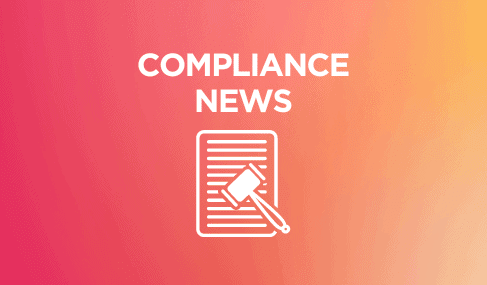
To keep up with growing regulations for outbound sales and lead generation, you need to know what the frequently used acronyms represent. Below we break down common acronyms around compliance to help you better navigate the complex landscape.
Compliance Legislation Acronyms
NPRM – Notice of Proposed Rule making
The Notice of Proposed Rule making (NPRM) is a public notice issued by U.S. federal agencies when they seek to add, remove, or modify rules and regulations. It is part of the rule making process, and the FNPRM (Further Notice of Proposed Rule Making) provides an opportunity for additional comments on related proposals.
PEWC – Prior Express Written Consent
Prior Express Written Consent (PEWC) refers to an agreement, either written or oral, where consent is clearly given to receive calls at a specific phone number. It requires the recipient’s written or electronic signature, which can be a signed document or an electronic affirmation like a button.
STIR/SHAKEN – Secure Telephone Identity Revisited/Signature-based Handling of Asserted Information Using toKENs
The STIR/SHAKEN framework, introduced by the TRACED Act, addresses the issue of illegal call spoofing and protects consumers and businesses. Telephone service providers implement STIR/SHAKEN protocols to authenticate and validate caller ID information, enhancing call transparency and combating fraudulent activities.
TCPA – Telephone Consumer Protection Act
The Telephone Consumer Protection Act Restricts usage of pre-recorded telemarketing calls, and Automated Telephone Dialing Systems (ADTS). It forbids call centers from making outbound sales calls, sending texts, or broadcasting pre-recorded messages without the expressed consent of the consumer.
TRACED – Telephone Robocall Abuse Criminal Enforcement and Deterrence
The Telephone Robocall Abuse Criminal Enforcement and Deterrence (TRACED) Act grants greater authority to the FCC and law enforcement agencies to prosecute fraudulent robocallers, aiming to combat deceptive caller IDs and mitigate the impact of robocalls.
TSA – Telephone Solicitation Act
The Telephone Solicitation Act (TSA) covers telemarketing calls made with a system that automatically dials numbers or plays a recorded message when a call is connected. This definition is broader than the one given in Facebook v. Duguid (2021), and applies to B2B marketing in addition to consumer telemarketing.
States passing legislation to strengthen consumer protections for their residents have begun passing their own Telephone Solicitation Acts, for example the Florida Telephone Solicitation Act (FTSA) or the Oklahoma Telephone Solicitation Act (OTSA). Note that some related state legislations are named otherwise, such as Maryland’s “Stop the Spam Calls Act of 2023.”
TSR – Telemarketing Sales Rule
The Telemarketing Sales Rule (TSR) requires telemarketers to provide specific disclosures, prohibits misrepresentations, sets limits on call times, prevents calls to consumers who have opted out, and imposes payment restrictions for certain goods and services.
Industry Terms Related to Compliance Acronyms
ATDS – Automatic Telephone Dialing System
An Automatic Telephone Dialing System (ATDS) refers to equipment capable of storing or generating telephone numbers and dialing them using a random or sequential number generator. It is prohibited to use an ATDS to contact cell phones with pre-recorded messages unless the recipient has provided and not revoked consent to receive such calls or texts.
DNC – Do Not Call
Do Not Call (DNC) refers to the status assigned to a prospect when they indicate that they no longer wish to receive calls.
FCC – Federal Communication Commission
The Federal Communication Commission (FCC) is a government agency that protects consumers against abusive practices by businesses that use telecommunications as a means of conducting their operations.
FTC – Federal Trade Commission
The Federal Trade Commission (FTC) is a government agency focused on consumer protection, combating fraud, and addressing deceptive practices in various industries.
Mini-TCPA
Although not an official term, “Mini-TCPA” is commonly used to refer to state telemarketing laws. These laws often have stricter prohibitions, equivalent or greater penalties than the TCPA, and potentially broader definitions of autodialers.
TPMO – Third-Party Marketing Organization
A Third-Party Marketing Organization (TPMO) refers to an organization or individual, including independent agents and brokers, who are engaged in lead generation, marketing, sales, and enrollment-related activities within the enrollment process. They are required to submit their marketing materials directly to the Center for Medicare & Medicaid Services (CMS) for review and approval.
Familiarizing yourself with common acronyms helps you better understand our changing regulatory environment. Convoso provides tools to support compliance.
Get a recap of the latest contact center compliance news delivered monthly to your inbox. Subscribe here >
DISCLAIMER: The information on this page and related links is provided for general education purposes only and is not legal advice. Convoso does not guarantee the accuracy or appropriateness of this information to your situation. You are solely responsible for using Convoso’s services in a legally compliant way and should consult your legal counsel for compliance advice. Any quotes are solely the views of the quoted person and do not necessarily reflect the views or opinions of Convoso.
